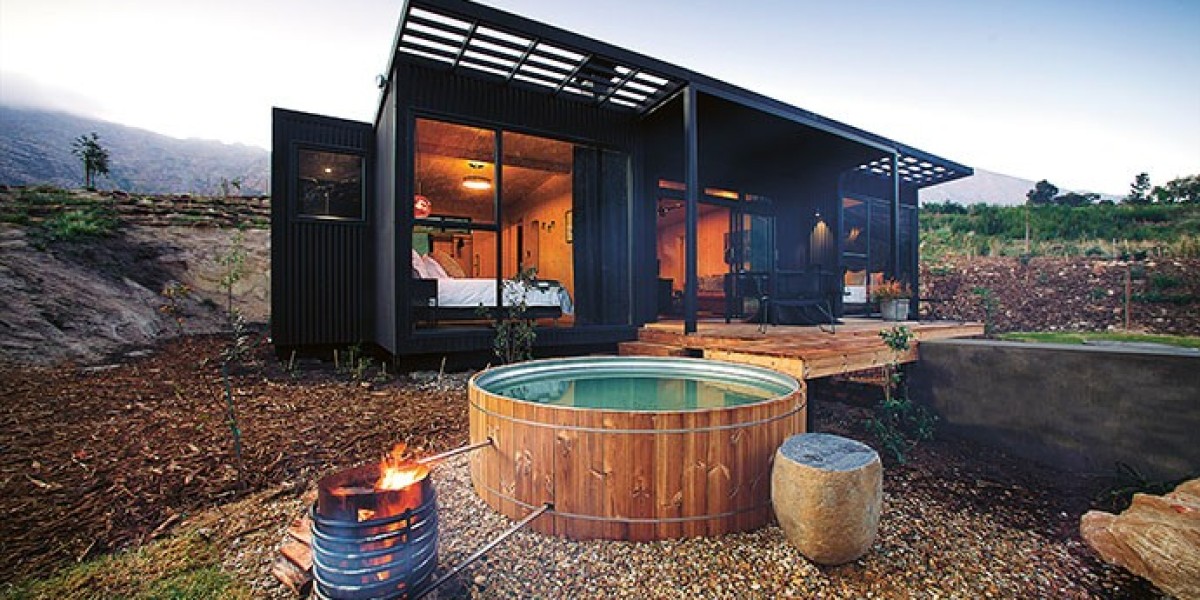In today’s fast-paced, technology-driven world, many travelers are seeking a different kind of getaway—one that offers peace, simplicity, and a deeper connection with nature. Off grid accommodation has emerged as a popular choice for those looking to unplug, unwind, and experience sustainable living without sacrificing comfort.
If you’re considering an escape from city life or just want to try something new, this guide will explore what off grid accommodation is, why it’s becoming so popular, and how it can transform your next holiday or retreat.
What is Off Grid Accommodation?
Off grid accommodation refers to places to stay that operate independently of the traditional utility networks. These properties generate their own power—often through solar panels or wind turbines—and manage water, heating, and waste in environmentally friendly ways.
Unlike conventional hotels or rental homes, off grid accommodations emphasize sustainability, self-sufficiency, and harmony with the natural environment. This type of lodging can range from cozy cabins and eco-lodges to yurts, tiny houses, or even luxury tents.
Why Choose Off Grid Accommodation?
There are several compelling reasons why travelers are choosing off grid accommodation for their vacations and retreats:
1. Disconnect to Reconnect
Living off the grid naturally encourages guests to switch off devices, reduce screen time, and immerse themselves in the moment. Without the distractions of city noise, emails, and social media, you can reconnect with yourself, loved ones, and the environment around you.
2. Sustainable Travel
Off grid accommodations promote eco-friendly travel. By using renewable energy, harvesting rainwater, and minimizing waste, these properties reduce environmental impact and help conserve precious resources.
3. Unique and Authentic Experiences
Staying off the grid often means embracing simplicity and a slower pace of life. Whether it’s waking up to birdsong, cooking over a wood stove, or stargazing far from city lights, these experiences can be deeply rewarding and memorable.
4. Peace and Privacy
Many off grid locations are nestled in remote or rural settings, providing a high degree of privacy and tranquillity. This makes them ideal for couples, solo travelers, or anyone seeking a peaceful retreat.
Types of Off Grid Accommodation
Off grid accommodation comes in many forms to suit different tastes and budgets. Here are some popular options:
Eco Cabins and Tiny Houses
Compact, efficient, and comfortable, eco cabins and tiny houses often feature solar power, composting toilets, and sustainable building materials. They offer a cosy base for nature lovers and minimalists alike.
Yurts and Bell Tents
Inspired by traditional nomadic dwellings, yurts and bell tents provide a unique blend of rustic charm and comfort. Many off grid campsites offer these structures with added amenities like wood-burning stoves and insulated flooring.
Treehouses and Woodland Retreats
For a magical experience, some off grid accommodations include elevated treehouses or secluded woodland hideaways, allowing guests to live among the trees and wildlife.
Converted Barns and Farm Buildings
In rural areas, old barns or farm structures may be converted into off grid holiday homes, combining rustic character with eco-friendly systems.
Essential Features of Off Grid Accommodation
While off grid accommodation varies widely, many share common features designed to support sustainable and independent living:
Renewable Energy: Solar panels, wind turbines, or hydro power generate electricity.
Water Management: Rainwater harvesting, wells, or natural springs provide water, often supported by filtration systems.
Waste Systems: Composting toilets or septic tanks handle waste responsibly.
Heating and Cooking: Wood burners, gas stoves, or solar cookers provide warmth and food preparation options.
Minimal Technology: Limited or no internet and mobile signals encourage digital detox.
Tips for Enjoying Your Off Grid Stay
To make the most of your off grid accommodation experience, consider these tips:
Pack Wisely: Bring comfortable outdoor clothing, reusable water bottles, and essentials for a more self-sufficient stay.
Adjust Expectations: Off grid living can mean fewer conveniences, so embrace the simplicity and flexibility it requires.
Engage with Nature: Take advantage of the location to hike, swim, stargaze, or simply relax outdoors.
Plan for Limited Connectivity: Use the time to disconnect from digital devices and enjoy quality time with companions or solitude.
Who Should Consider Off Grid Accommodation?
Off grid accommodation is ideal for:
Nature Enthusiasts: Those who want to immerse themselves in the outdoors.
Sustainability Advocates: Travelers keen on reducing their carbon footprint.
Couples and Honeymooners: Looking for a romantic, secluded escape.
Wellness Seekers: People wanting a peaceful environment for meditation, yoga, or rest.
Adventurous Travelers: Those eager to try alternative lifestyles or unique lodging.
The Future of Off Grid Accommodation
As awareness of environmental issues grows and more people seek mindful travel experiences, off grid accommodation is likely to become even more popular. Innovations in green technology and eco-friendly building methods continue to improve comfort while maintaining sustainability.
Choosing to stay off the grid not only offers a refreshing break but also supports responsible tourism and the preservation of natural landscapes.
Conclusion
Off grid accommodation presents a unique and rewarding way to experience travel. It invites you to slow down, reduce your environmental impact, and embrace the beauty of nature in a comfortable, sustainable setting.
Whether you’re dreaming of a rustic cabin in the woods, a cosy yurt under the stars, or a tiny house with solar power, off grid lodging provides an escape from the ordinary. It’s an opportunity to recharge your mind, body, and spirit in harmony with the natural world.
If you want to step off the beaten path and experience a truly memorable getaway, off grid accommodation might just be the perfect choice.






